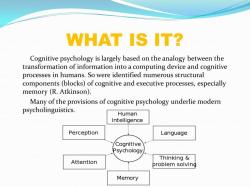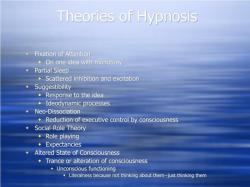What similarities does structuralism and functionalism share?
Structuralism and functionalism are two early schools of thought in psychology, and while they have distinct differences, they also share some commonalities. Here are a few key similarities between structuralism and functionalism:
Interest in the Study of Consciousness:
- Both structuralism and functionalism were concerned with understanding the nature of consciousness. While they had different approaches to this goal, they shared a focus on the mind and subjective experiences.
Historical Context:
- Structuralism and functionalism emerged during the late 19th and early 20th centuries, a period when psychology was just beginning to establish itself as a scientific discipline. They were both reactions to the dominant philosophical and psychological ideas of the time.
Founders and Influential Figures:
- Wilhelm Wundt, often regarded as the founder of structuralism, and William James, one of the key figures in functionalism, were influential psychologists who made significant contributions to the early development of psychology.
Empirical Research:
- Both structuralism and functionalism emphasized the importance of empirical research and experimentation in psychology. Structuralists used introspection to study the elements of consciousness, while functionalists conducted empirical studies to understand the purpose of mental processes.
Desire to Make Psychology a Science:
- Both schools aimed to establish psychology as a legitimate scientific discipline. They sought to apply scientific methods to the study of the mind and behavior, moving away from the more philosophical and speculative approaches of earlier psychology.
Influence on Later Psychological Approaches:
- Structuralism and functionalism played a role in shaping the course of psychology's development. Although they were eventually overshadowed by other schools of thought (such as behaviorism and psychoanalysis), their ideas and methods contributed to the foundation of modern psychology.
It's important to note that while structuralism and functionalism share these commonalities, they also had significant differences in their approaches and goals. Structuralism focused on identifying the basic elements of consciousness, while functionalism aimed to understand the adaptive functions of mental processes. Over time, these differences led to the eventual decline of structuralism in favor of other approaches that were more focused on practical applications and observable behavior.
Common Ground between Structuralism and Functionalism in Psychology
Despite their differences, structuralism and functionalism share some common ground in their approach to understanding the mind:
Empiricism: Both structuralism and functionalism emphasized the importance of empirical methods, relying on observation and experimentation to study the mind.
Focus on Mental Processes: Both schools focused on understanding the basic processes of the mind, such as perception, memory, and thought.
Mental Elements: Both structuralism and functionalism analyzed the mind into its constituent elements, albeit with different approaches.
Historical Development of Structuralism and Functionalism
Structuralism emerged in the late 19th century, founded by Wilhelm Wundt. It aimed to analyze the mind into its basic elements, such as sensations and feelings. Wundt established the first psychology laboratory in Leipzig, Germany, in 1879.
Functionalism arose in the early 20th century, led by William James and John Dewey. It focused on the purpose and function of mental processes, emphasizing how they help organisms adapt to their environment. Functionalism challenged the structuralist approach, arguing that the mind should not be studied in isolation but rather in the context of its role in behavior.
Key Figures and Theories in Structuralism and Functionalism
Structuralism:
Wilhelm Wundt (1832-1920): Founder of structuralism, established the first psychology laboratory, and developed theories of perception and consciousness.
Edward Titchener (1867-1927): Wundt's student and leading proponent of structuralism in the United States.
Functionalism:
William James (1842-1910): American philosopher and psychologist, considered the father of functionalism. Developed theories of attention, emotion, and habit.
John Dewey (1859-1952): American philosopher and psychologist, co-founder of the functionalist school. Emphasized the role of the mind in adaptation and problem-solving.
Impact and Legacy of Structuralism and Functionalism
Structuralism and functionalism had a profound impact on the development of psychology:
Structuralism: Introduced scientific rigor and experimental methods to psychology, paving the way for future research.
Functionalism: Shifted the focus of psychology from the structure of the mind to its function, emphasizing the role of the mind in behavior and adaptation.
Contemporary Relevance of Structuralist and Functionalist Ideas
Structuralist and functionalist ideas continue to influence contemporary psychology:
Structuralism: The study of basic mental processes, such as perception and attention, remains a central area of research in cognitive psychology.
Functionalism: The functionalist emphasis on the mind's role in adaptation and behavior has influenced research in areas such as evolutionary psychology, cognitive neuroscience, and behavioral psychology.
While both structuralism and functionalism have evolved and been refined over time, their contributions to the field of psychology remain significant. Their emphasis on empirical methods, the analysis of mental processes, and the relationship between mind and behavior has laid a foundation for modern psychological research and theory.












